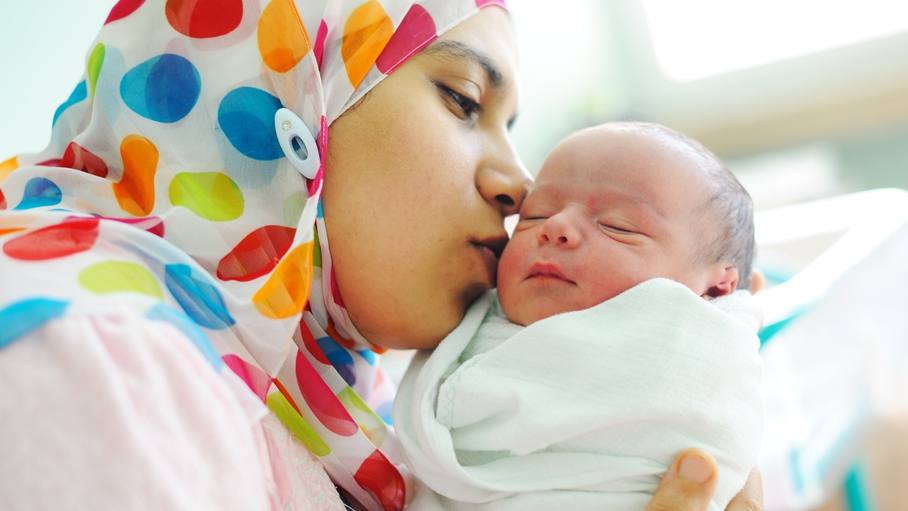-
Drug to prevent RSV in babies approved: What you need to know

The Food and Drug Administration (FDA) approved a drug to help protect infants from respiratory syncytial virus (RSV). The medication, given as a single-dose injection prior to or during RSV season, is a monoclonal antibody. It is intended for babies born during or entering their first RSV season and for children up to 24 months of age who remain vulnerable to severe RSV disease through their second RSV season. The Advisory Committee on Immunization Practices, the vaccine advisory board for the Centers for Disease Control and Prevention (CDC) is expected to review and vote on the drug its next meeting on August 3. The FDA is also evaluating an RSV vaccine for pregnant women.
"This is especially exciting for us in pediatrics because vaccinating pregnant women in the second or third trimester of pregnancy can protect babies when they're most vulnerable for developing severe illness with RSV, usually in the first six to 12 months of life," says Dr. Nipunie Rajapakse, a pediatric infectious diseases physician with the Mayo Clinic Children's Center.
Watch: Dr. Nipunie Rajapakse talks about RSV drug for infants
Journalists: Broadcast-quality sound bites with Dr. Rajapakse are available in the downloads at the end of the post. Please courtesy: "Mayo Clinic News Network." Name super/CG: Nipunie Rajapakse, M.D./Pediatric Infectious Diseases/Mayo Clinic.
RSV is often a seasonal illness that typically starts circulating in the fall. It is transmitted from person to person through close contact with an infected person.
"This is a relatively common virus that used to be seasonal in the fall and winter. But over the COVID-19 years, we've seen some changes in that seasonality with seasons starting earlier or ending later than usual," says Dr. Rajapakse.
A surge of RSV infection during last season resulted in many young children needing medical attention or being hospitalized. The CDC says 58,000 to 80,000 infants and children are hospitalized yearly due to RSV.
"RSV, when it presents to young infants or babies, can present initially with cold-type symptoms and may include some cough, runny nose fever," says Dr. Rajapakse. "But in these young children, it tends to move down into the chest and cause bronchiolitis or inflammation of the small airways in the lungs. When that happens, kids can have difficulty breathing and shortness of breath. They have to use more of their muscles to breathe and can get tired. And when that happens, their oxygen levels can drop."
When their oxygen levels drop, it can result in symptoms like cyanosis, or blueness, around the lips, with lethargy and difficulty feeding.
"It's essential if parents notice some of those findings that they seek medical care right away," Dr. Rajapakse says.
RSV in young children is very common. The virus typically infects most children by their second birthday and can also affect adults. Healthy adults and older children may experience mild symptoms that mimic a cold.
Severe and potentially life-threatening infections can happen in young babies, older adults or anyone with a weakened immune system.
Symptoms usually appear in stages rather than all at once.
- Runny nose
- Decrease in appetite
- Coughing
- Sneezing
- Fever
- Wheezing
There is no treatment for a mild or moderate RSV. In most cases, doctors recommend drinking plenty of fluids, taking over-the-counter pain or fever medication and resting. Symptoms should go away on their own in a week or two.
Earlier this year, the CDC backed the FDA's recommendation for an RSV vaccine targeting older adults. The vaccine is for people aged 60 and above. It is expected the vaccine will be available this fall.
The CDC reports that RSV infection leads to hospitalization for an estimated 60,000 to 160,000 adults and causes 6,000 to 10,000 deaths annually among those age 65 and over.
There are steps anyone can take now to help prevent the spread of a virus, including RSV.
Prevention for RSV and other respiratory viruses:
- Wash your hands often
- Keep hands away from your face
- Avoid close contact with people who are sick
- Cover your mouth and nose when coughing or sneezing
- Clean and disinfect surfaces
- Stay home when you are sick or not feeling well
Talk with your healthcare team to find out if the vaccines are right for you and your family.







